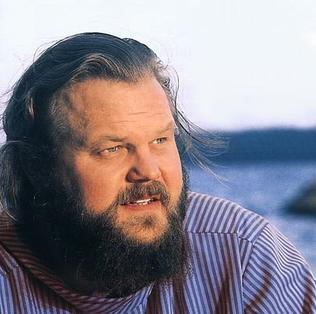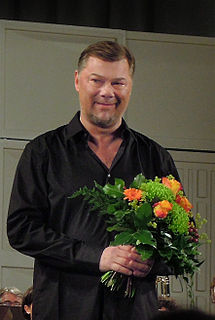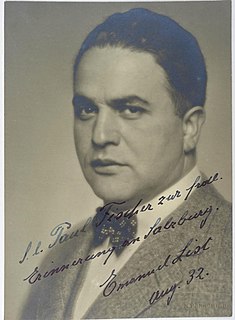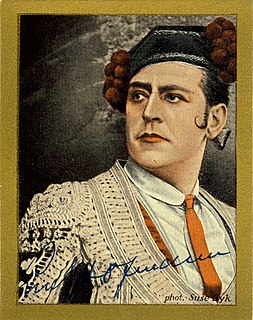
Kurt Moll was a German operatic bass singer who enjoyed an international career and was widely recorded.

Martti Olavi Talvela was a Finnish operatic bass.
Josef Greindl was a German operatic bass, remembered mainly for his performances of Wagnerian roles at Bayreuth beginning in 1943.

René Pape is a German operatic bass. Pape has received two Grammys, was named “Vocalist of the Year” by Musical America in 2002, “Artist of the Year” by the German opera critics in 2006, and won an ECHO award in 2009.
Ludwig Weber was an Austrian bass.
Karl Ridderbusch was a German operatic bass, associated in particular with the music of Wagner. He was recognised as a notable exponent of the role of Hans Sachs.

Emanuel List was an Austrian-American opera bass. He is best remembered for his performances in Wagnerian operas.
Kaspar Bausewein was a German operatic bass who was active at the Bavarian State Opera from 1858 through 1900. While there, he notably portrayed several characters in the world premieres of operas composed by Richard Wagner. He created Pogner in Die Meistersinger von Nürnberg, Fafner in Das Rheingold, Hunding in Die Walküre and Harald in Die Feen.

Kurt Rydl is an Austrian operatic bass.
Herbert Alsen (12 October 1906 – 25 October 1978 was a German operatic bass of formidable volume and stature.
Martti Wallén is a Finnish operatic bass singer. Born in Helsinki, he sang both internationally and in his native country where he was a visiting soloist at the Finnish National Opera for many years. He created the role of the Judge in the world premiere of Aulis Sallinen's The Horseman in 1975.
Ain Anger is an Estonian opera bass.
Gerd Nienstedt was a German and Austrian opera singer, bass and bass-baritone. After an international career at major opera houses and the Bayreuth Festival, he was also a theatre director, stage director and academic voice teacher.

Ludwig Hofmann was a German opera singer (bass), who from the late 1920s obtained worldwide recognition above all as an exponent of Wagnerian roles. He worked principally in the opera houses in Berlin and Vienna and in the Vienna State Opera, and from 1928 to 1942 was frequently involved in the Bayreuth Festivals.

Paul Bender was a German operatic bass.
Ernst Wiemann was a German operatic bass.
Günther Groissböck is an Austrian operatic bass. Anthony Tommasini, chief classical music critic for The New York Times, described Groissböck's "imposing and good-looking" portrayal of Baron Ochs in Der Rosenkavalier at the Metropolitan Opera, New York, as "a revelation". James Jorden of the New York Observer praised Groissböck's "innovative take" on the role and his "big, virile sound". A 2018 recording of the Met performance was nominated for Grammy Award in the Best Opera Recording.
Matthias Hölle is a German bass in opera and concert who has made an international career. He performed regularly at the Bayreuth Festival in major roles such as Hunding in Die Walküre, King Marke in Tristan und Isolde, and Gurnemanz in Parsifal. He appeared in the world premieres of Stockhausen's Donnerstag aus Licht and Samstag aus Licht at La Scala in Milan.
Kwangchul Youn is a South Korean operatic bass and academic voice teacher. He made an international career based in Germany, from 1994 to 2004 at the Berlin State Opera. He has performed leading roles at international opera houses and festivals, such as Gurnemanz in Parsifal at the Bayreuth Festival, Mephisto in Faust at the Vienna State Opera, and King Marke in Tristan und Isolde at the Metropolitan Opera.
Christian Hübner is a German operatic bass.








